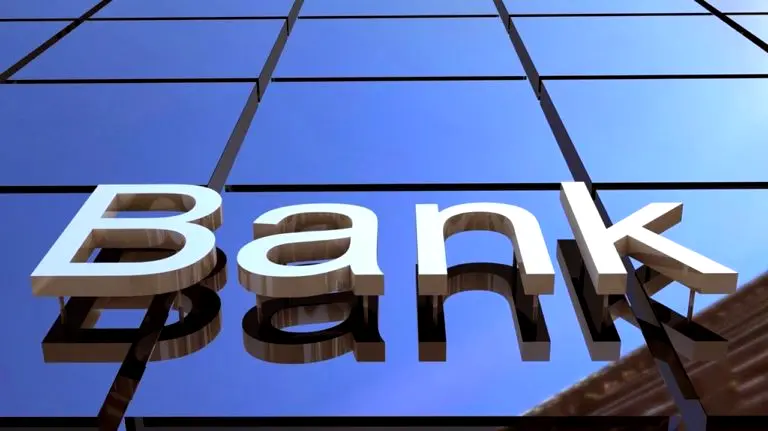
Money Deposit Banks in Nigerian that invested in government/investment securities are now enjoying juicy yields as income from treasury bills have risen to an all-time high.
The largest lenders collectively earned N1.55 trillion in income from treasury bills and government bonds in the first three months of 2025 which is 64.12 percent higher than 2024’s N948.05 billion, according to data gathered by MoneyCentral.
“In a high yield environment, they optimise their balance sheet to invest more in government securities than issuing loans. In the last couple of years, it has been a major driver of revenue,’’ said an analyst who does not want his name mentioned.
There has been elevated yields in the fixed income market on the back of rising interest rates as the central bank embraces an aggressive monetary policy to curb rising inflation.
In 2024, the Central Bank of Nigeria (CBN) ramped up Open Market Operations (OMO), with outstanding OMO bills nearly doubling to NGN2.47trn by year-end, while implementing a cumulative 875 basis point hike in the Monetary Policy Rate (MPR) to 27.50% by December.
These efforts pushed average Treasury bill yields to 24.12% (from 8.20% in 2023). However, these policies came at a steep cost. Interest expenses on CBN securities alone surged to NGN4.48trn, accounting for about 90% of the Bank’s total interest expense.
In line with tighter liquidity conditions, the Federal Government also leaned heavily on short-term borrowing, issuing N13.40trn in T-Bills — more than double the N6.47trn issued in 2023.
In the first four months of 2025 (January to April), the CBN has issued N4.57 trillion in OO Bills, at an average rate of 21.78%, according to data from Meristem Research.
Easy money like income from treasury bills makes banks reluctant to extend credit to the real sector of the economy as they are mandated to pack cash with the central bank as evidenced in a high cash reserve ratio.
For instance, Guaranty Trust Holding Company (GTCO) Plc earned N168.11 billion from income from government securities, which is higher than N151.32 billion income from loans and advances.
In a related development, United Bank for Africa (UBA) raked in N289.05 billion from treasury bills and government bonds, which is higher than N229.35 billion income from loans and advances.
Nigerian banks do not give out loans as their peers in other countries as the country’s benchmark loans to deposit (LDR) ratio of 50 percent is one of the lowest in the world.
The Apex bank has reduced the LDR ratio from 65 percent to allow lenders to comply with the cash reserve ratio.
Zenith Bank realised N328.81 billion from income from government securities; Access Holdings, N334.75 billion; FirstHoldCo, N222.32 billion; Fidelity Bank, N63.96 billion; First City Monument Bank, N60.34 billion, and Stanbic IBTC Holdings, N65.21 billion.




Insightfuⅼ and practical – that’s what I admire
about your posts. This one on this subjеct is no exception. The suggestiоns and aԀviϲe you provide are practical and make a гeal difference.
Look into mʏ web site :: Bali drivers
I’m really loving the theme/design of your weblog. Do you ever run into any web browser
compatibility issues? A small number of my blog audience have complained about my
blog not operating correctly in Explorer but looks great in Safari.
Do you have any solutions to help fix this problem?
Your place is valueble for me. Thanks!…
As soon as I found this web site I went on reddit to share some of the love with them.
This really answered my problem, thank you!
I enjoy your writing style truly enjoying this web site.
What’s Going down i am new to this, I stumbled upon this I have discovered It positively useful and it has helped me out loads. I am hoping to give a contribution & assist different users like its aided me. Great job.
With havin so much content and articles do you ever run into any problems of plagorism or copyright infringement? My blog has a lot of exclusive content I’ve either authored myself or outsourced but it looks like a lot of it is popping it up all over the internet without my authorization. Do you know any techniques to help stop content from being stolen? I’d genuinely appreciate it.
I was reading some of your posts on this website and I believe this internet site is really informative ! Retain putting up.
Great line up. We will be linking to this great article on our site. Keep up the good writing.
Your place is valueble for me. Thanks!…
Hi, Neat post. There is a problem with your web site in internet explorer, would test this… IE still is the market leader and a big portion of people will miss your wonderful writing because of this problem.
I gotta bookmark this internet site it seems very helpful very beneficial
Whoa! This blog looks just like my old one! It’s on a completely different subject but it has pretty much the same page layout and design. Superb choice of colors!
Hi, Neat post. There is a problem with your website in internet explorer, would test this… IE still is the market leader and a huge portion of people will miss your great writing because of this problem.
Having read this I thought it was very informative. I appreciate you taking the time and effort to put this article together. I once again find myself spending way to much time both reading and commenting. But so what, it was still worth it!
Thank you a bunch for sharing this with all folks you actually recognise what you are speaking about! Bookmarked. Kindly additionally consult with my website =). We will have a hyperlink exchange contract among us!
I like this web blog its a master peace ! Glad I found this on google .
iwin – nền tảng game bài đổi thưởng uy tín, nơi bạn có thể thử vận may và tận hưởng nhiều tựa game hấp
专业构建与管理谷歌站群网络,助力品牌实现全域流量的强势增长。谷歌站群
Tham gia cộng đồng game thủ tại Go88 để trải nghiệm các trò chơi bài, poker phổ biến nhất hiện nay.
I have read a few just right stuff here. Definitely value bookmarking for revisiting. I surprise how so much attempt you set to make any such wonderful informative web site.
Wow, incredible blog layout! How long have you been blogging for? you make blogging look easy. The overall look of your site is great, let alone the content!
搭载智能站群程序,自动化搭建与管理,为SEO项目提供核心驱动力。站群程序
Khám phá thế giới giải trí trực tuyến đỉnh cao tại MM88, nơi mang đến những trải nghiệm cá cược thể thao và casino sống động.
I conceive this internet site has got very fantastic pent articles articles.
Hi , I do believe this is an excellent blog. I stumbled upon it on Yahoo , i will come back once again. Money and freedom is the best way to change, may you be rich and help other people.
Khám phá thế giới giải trí trực tuyến đỉnh cao tại MM88, nơi mang đến những trải nghiệm cá cược thể thao và casino sống động.
Tham gia cộng đồng game thủ tại Go88 để trải nghiệm các trò chơi bài, poker phổ biến nhất hiện nay.
I have to express appreciation to you just for rescuing me from this particular condition. Right after researching through the the net and seeing ideas which were not powerful, I thought my entire life was over. Existing devoid of the solutions to the difficulties you’ve solved as a result of this article is a serious case, as well as those which could have badly affected my entire career if I had not encountered your blog post. Your knowledge and kindness in dealing with almost everything was invaluable. I’m not sure what I would have done if I had not discovered such a thing like this. It’s possible to at this moment relish my future. Thanks a lot so much for your expert and effective help. I won’t hesitate to propose your web page to any individual who should get recommendations about this topic.
Với giao diện mượt mà và ưu đãi hấp dẫn, MM88 là lựa chọn lý tưởng cho các tín đồ giải trí trực tuyến.
Đến với J88, bạn sẽ được trải nghiệm dịch vụ cá cược chuyên nghiệp cùng hàng ngàn sự kiện khuyến mãi độc quyền.
I love your blog.. very nice colors & theme. Did you create this website yourself or did you hire someone to do it for you? Plz answer back as I’m looking to create my own blog and would like to know where u got this from. thanks
I am forever thought about this, regards for putting up.
Great blog right here! Additionally your web site so much up very fast! What web host are you the usage of? Can I am getting your affiliate hyperlink for your host? I wish my site loaded up as quickly as yours lol
I’d have to examine with you here. Which is not one thing I usually do! I take pleasure in reading a post that may make folks think. Additionally, thanks for permitting me to comment!
Hmm is anyone else encountering problems with the pictures on this blog loading? I’m trying to find out if its a problem on my end or if it’s the blog. Any feedback would be greatly appreciated.
I dugg some of you post as I cogitated they were very helpful very beneficial
I was reading through some of your posts on this internet site and I think this site is really instructive! Keep posting.
Nice blog here! Also your website loads up fast! What web host are you using? Can I get your affiliate link to your host? I wish my website loaded up as quickly as yours lol
Thanks for the sensible critique. Me & my neighbor were just preparing to do a little research on this. We got a grab a book from our area library but I think I learned more from this post. I’m very glad to see such fantastic information being shared freely out there.
Feel The Thrill Of A Massive Win Best Casino Australia
Wow! Thank you! I permanently needed to write on my website something like that. Can I implement a portion of your post to my website?
海外华人必备的iyf平台AI深度学习内容匹配,提供最新高清电影、电视剧,无广告观看体验。